Easy to Transport Food Storage Non Perishable Food
Non-perishable food might not sound particularly delicious to you, especially if you prefer the flavor of fresh, crisp meals. But even though most non-perishable food items out there aren't winning any taste tests — or beauty contests, for that matter — these products could possibly save your life someday. We don't know about you, but we think that's a quality all of us can appreciate.
Though there have only been 14 cases of the coronavirus in the U.S. and the CDC reports that "the U.S. government and public health partners are implementing aggressive measures to slow and contain transmission of COVID-19 in the United States," it's always good to be prepared. In a worst-case scenario you need healthy non-perishable food that will keep in order to sustain you and your loved ones for at least a few days.
But even if you never personally experience such an event, it's still valuable to inform yourself about the best non-perishable food out there. After all, it can also come in handy for fun activities like camping and backpacking. Additionally, your extra healthy non-perishable foods can be donated to families in need. On top of all that, it's always good to have a general sense of preparedness when you're stocking the pantry. You never know who — or what — may drop by for a surprise!
What is non-perishable food?
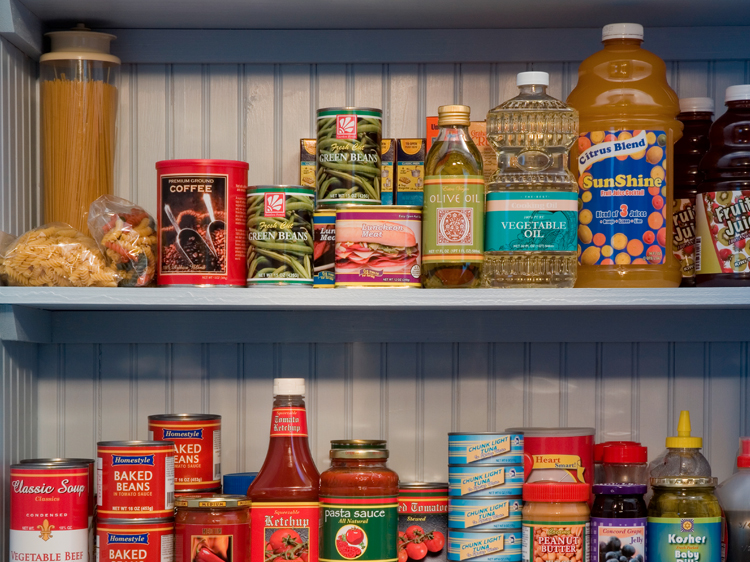
Non-perishable foods, also known as "shelf-stable" foods, are items that can be safely stored at room temperature, according to the United States Department of Agriculture (USDA). In order for perishable foods such as vegetables to become non-perishable, they need to be dried or treated by heat to completely destroy any foodborne bugs that could lead to spoilage or cause an illness. Then, this food can be packaged in sterile, airtight containers such as cans. It's worth noting that preservation of these items is crucial; all foods will eventually spoil if they have not been properly preserved. No matter where you live, what your financial situation looks like, or how safe you think your home is, it never hurts to stock up on all the items on a basic list of non-perishable foods.
List of Non-Perishable Food Items
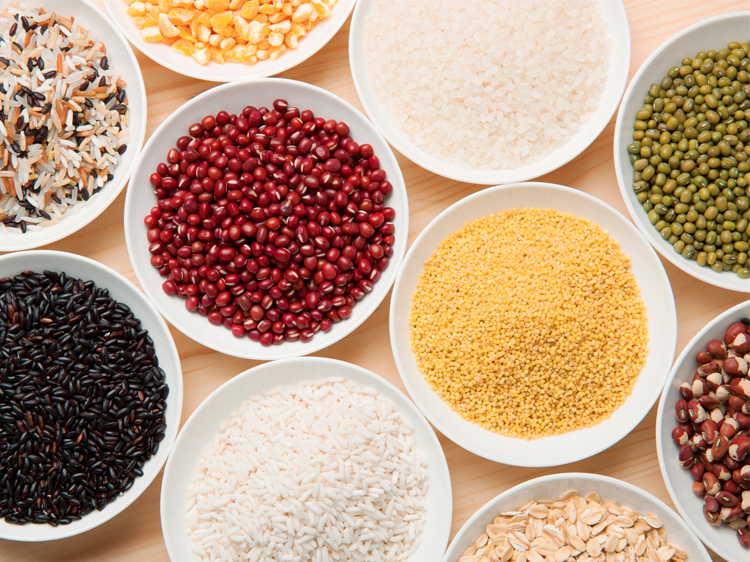
Thanks to the relatively modern invention of canning — it first became mainstream in France during the 19th century — we are fortunate to live in a time when non-perishable food is not only readily available, but also easily accessible at grocery stores and delis. This list of non-perishable food items from the USDA is by no means exhaustive (after all, it'd take forever and a day to account for every single non-perishable canned food on the planet!).
- Jerky
- Country hams
- Rice
- Pasta
- Flour
- Sugar
- Spices
- Foods processed in aseptic or retort packages
- Canned and bottled goods *
- Other products that don't require refrigeration before opening
*Important note: Not all canned goods are non-perishable. For example, some canned ham and seafood cannot be stored on the shelf. If a canned product is perishable, it will be labeled "Keep Refrigerated" on the container.
Best Non-Perishable Foods for Emergencies
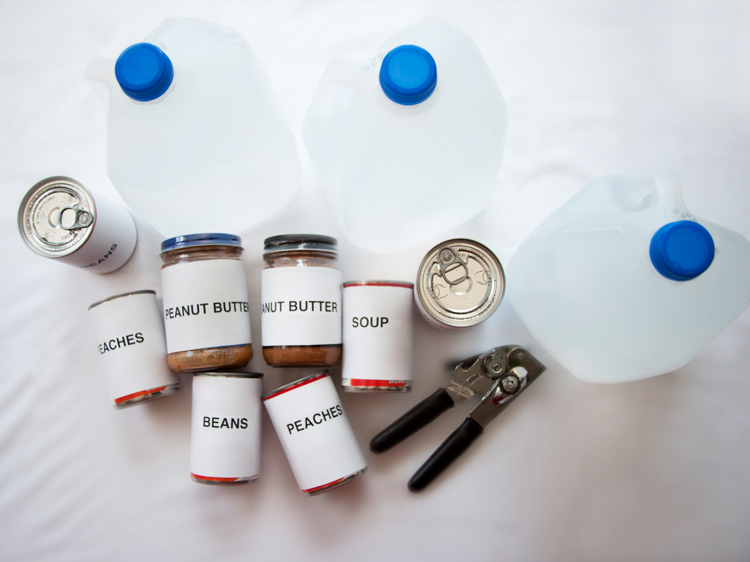
No one likes to think about the possibility of an emergency situation, but the truth is that being unprepared for a real crisis is so much worse than just dreading it. Even if you're safe location-wise during a nightmare scenario, you and your loved ones will still need to eat until it's safe to move elsewhere — and the last thing you want is to be scared and starving at the same time. That's why stocking up on filling and healthy non-perishable food well in advance is an absolute must, especially if you live in an area that is at high risk for disasters. Ready.gov recommends storing at least a three-day supply from its list of the best healthy non-perishable foods for emergency situations.
- Ready-to-eat canned meats, fruits, and vegetables*
- Protein or fruit bars
- Dry cereal or granola
- Peanut butter
- Dried fruit
- Canned juices
- Non-perishable pasteurized milk
- High-energy foods
- Food for infants
- Comfort/stress foods
*Don't forget your can opener!
Best Non-Perishable Foods for Camping
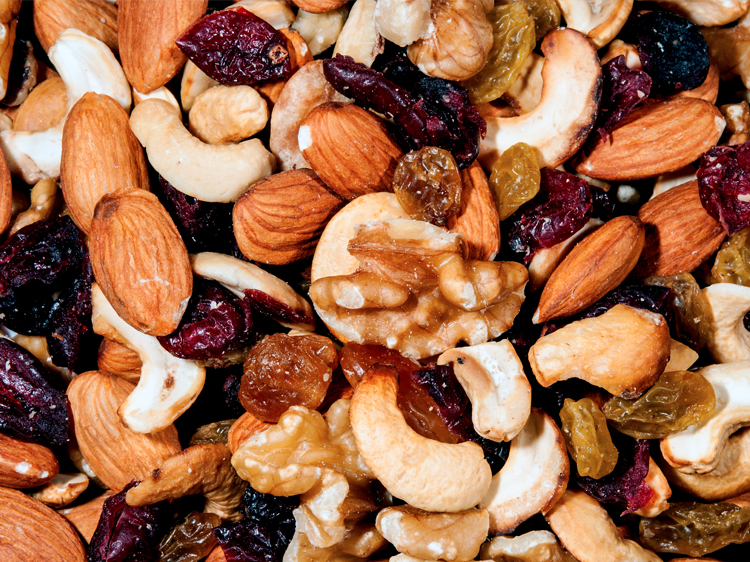
Obviously, camping is a much less stressful situation to prepare for than an emergency. That said, even if you're in a campground that you know like the back of your hand, the last thing you want is to end up short on food in the middle of the night when you have a growling stomach. But it's important to remember that the non-perishable items you'd pack for an emergency situation aren't necessarily the best non-perishable foods for camping. For example, the USDA notes that although many canned items are usually good non-perishable foods, they can also be pretty heavy and not ideal to carry in a backpack or duffel bag. That's why they offer a list of non-perishable food examples that are relatively lightweight. They also advise campers to plan their menus carefully, especially if their trips are set to last longer than one day. Anyone who's ever been camping before knows that healthy non-perishable snacks are also a must.
- Peanut butter in plastic jars
- Concentrated juice boxes
- Dried noodles and soups
- Beef jerky and other dried meats
- Dehydrated foods
- Dried fruits and nuts
- Powdered milk and fruit drinks
- Lightweight cans of tuna, ham, chicken, and beef
Best Non-Perishable Foods for Donations
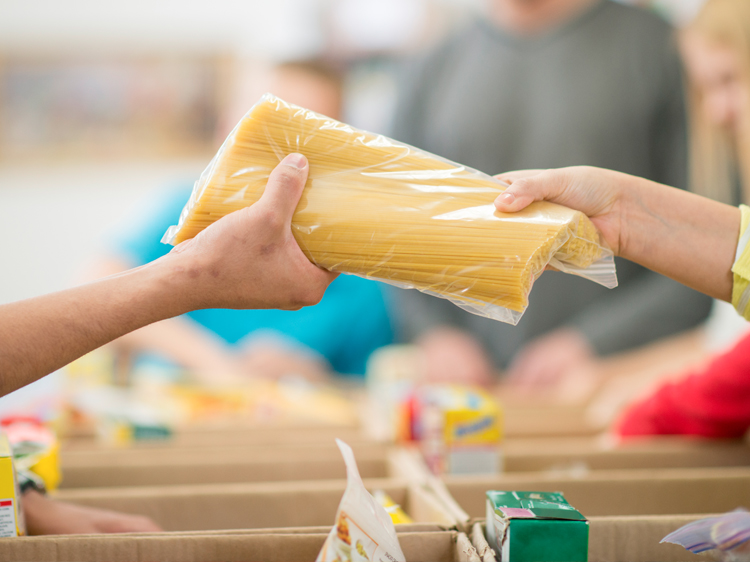
It's worth keeping in mind that some families out there struggle with getting food all year long. Regardless of whether you ever need to use your non-perishable food for hurricanes, tornados, or other unexpected problems, it's pretty much a guarantee that others need this food right now. Why not consider lending them a hand? Here are a few examples of the best non-perishable food to donate, straight from charities and nonprofits such as Second Harvest Food Bank, Central Texas Food Bank, and Hunger Task Force.
- Beef stew, chili, and similar meals with low salt, sugar, and saturated fats
- Dried or canned legumes such as peas, lentils, peanuts, and beans
- Pureed foods such as sweet potato, pumpkin, and applesauce
- Canned fruit, especially with low sugar (but no artificial sweeteners)
- Canned fish such as salmon, tuna, and sardines
- Canned meats such as chicken and turkey
- Peanut butter (plastic jars are preferred)
- Canned vegetables with low sodium such as green beans and corn
- Grains that are whole, like brown rice, oatmeal, and no-sugar-added cereal
- Snacks like granola, breakfast bars, or nuts
- Condiments like salsa, oil, or salt-free seasonings
- Canned tomato sauces
- Shelf-stable milk
- Baby formula
- Jars of baby food
- Powdered or canned milk
- Infant cereal
petersonsomuckledge.blogspot.com
Source: https://www.firstforwomen.com/posts/food-recipes/non-perishable-food-159219
0 Response to "Easy to Transport Food Storage Non Perishable Food"
Enviar um comentário